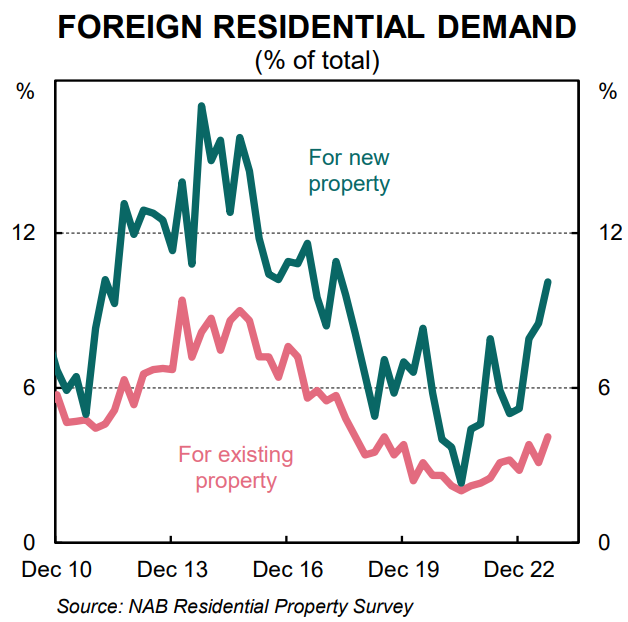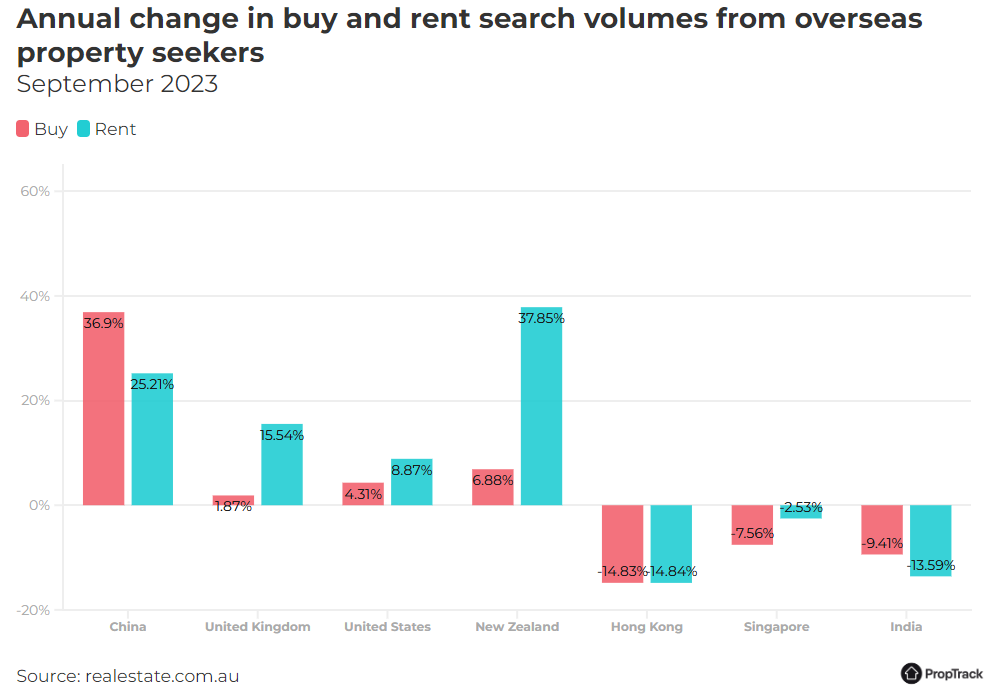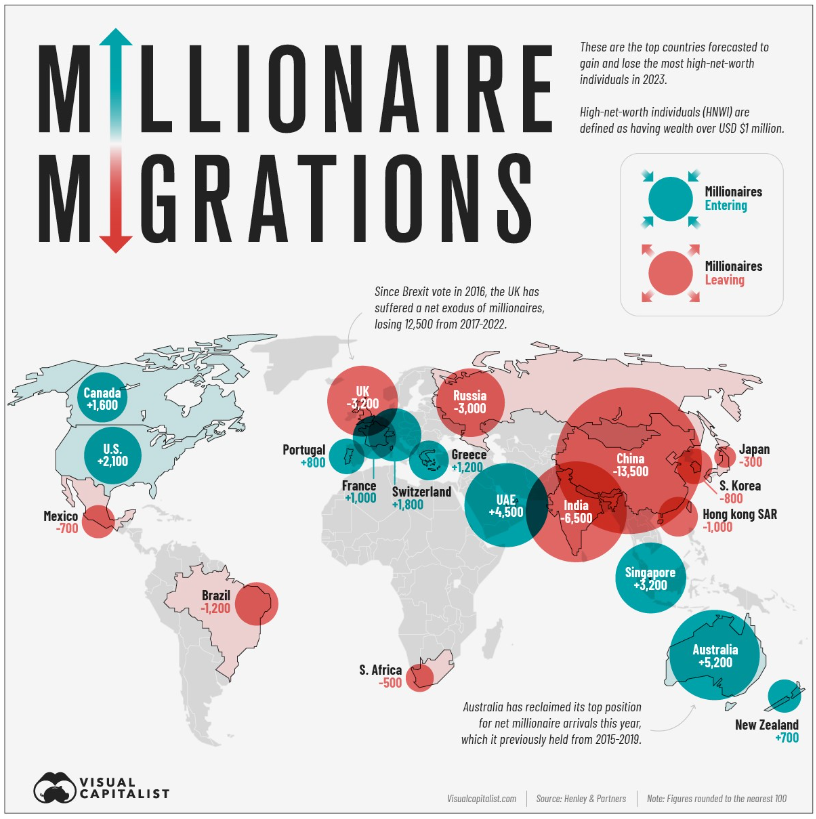Last month, NAB’s Quarterly Residential Property Survey of real estate professionals reported that the share of foreign buyers purchasing Australian homes has increased sharply since borders were opened in late-2021:

PropTrack’s latest search data likewise showed that foreign buyer interest in Australian property has never been higher, led by China:

Both surveys came after Property portal Juwai IQI ranked Australia as the most popular destination in the world for Chinese buyers.
“Chinese consumers have had their borders locked down for three years, and they have a lot of pending business to take care of”, Juwai IQI co-founder and group managing director Daniel Ho said.
“Whether their plans were to retire, study or just invest in Australia, they haven’t been able to do it for nearly three years”.
The Visual Capitalist also recently mapped the migration of the world’s millionaires over 2023, which shows that Australia received the largest number of millionaire migrants (+5,200), whereas China (-13,500) lost the most:

Juwai IQI spokesman, David Platter, told The AFR recently that it had “been working with a lot of Chinese ever since the borders opened. Presumably as flights continue to increase we will see buying increase”.
“These people are upper-middle-class and wealthy from a Chinese standpoint. They are buying townhouses, houses and large apartments at $1.5 million, $2 million, $2.5 million and up”, he said.
Over the weekend, the plot thickened, with The AFR reporting that official Treasury data, real estate agents, and Juwai IQI have reported a massive lift in foreign buyers seeking Australian homes, led by China.
Australian Treasury data shows that these foreign buyers are especially interested in the Sydney, Melbourne, and Brisbane markets.
Government approvals increased by 40% in the last quarter compared to the previous year, with buyers from mainland China, Hong Kong, Taiwan, and Vietnam leading the way.
Peter Li, general manager of Plus Agency, says buyer inquiries have quadrupled compared to the same time last year, and sales have doubled:
“Hong Kong-based buyers are No.1, followed by the mainlanders, and then Taiwanese. Then you have buyers from Malaysia, Indonesia and Vietnam”.
“International buying will definitely increase during the next year. There is more activity in terms of flights, so it’s increasingly easier to get in and out of Australia”.
“Also, the Chinese government has removed the requirement for a COVID test when you fly. In China, the real estate market is going into a down cycle, so people are looking at Australia for a premium alternative to buying at home”.
“They want a duplex, a house, a townhouse, or a large apartment. This is their transitional home, where they will live for the next five or 10 years. Then, they will probably look for a larger property down the track”.
Daniel Ho from Juwai IQI said Chinese buyer inquiries about Australia surged 158% in the third quarter—the second consecutive quarter with double-digit growth.
The median asking price was around $773,000, up more than $165,000 from the 2019 level of $607,000.
“The scale of Chinese buying far exceeds that of any other country. China is a populous country, and Chinese culture places great value on property as a store of wealth”, Ho said, adding that buyers are in “catch-up mode” after the pandemic.
“Compared to before the pandemic, Chinese buyers today are much less likely to be purchasing a pure investment property and are much more likely to be purchasing a family home for themselves”.
Australians seeking a home to live in continue to suffer from the former Rudd Government’s stupid decision in 2009 to allow temporary migrants to purchase established housing.
When combined with Australia’s weak anti-money laundering laws and mass immigration policy, residential housing has become a honeypot for foreign buyers, especially Chinese.
Sadly, Australian houses are no longer for Australians.

